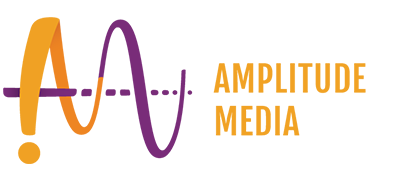Tips for success when working at home17 min read
If you are new to working from home due to COVID19 you may be feeling a mixture of emotions right now. I’d like to start by acknowledging that this isn’t just a regular transition to working in a different location. Dealing with a major upheaval and along with the climate of uncertainty in the world is enough to deal with. But you’re also trying to figure out how to effectively do your job from home.
If you try to carry on as usual, just from your kitchen table or couch you’re going to hit some road bumps. While introverts might be thrilled, and the extroverted among us are worrying about how to cope without all the people, everyone is going to need to adjust to the new workflow and mental space that working remotely requires.
Compounding issues of this adjustment might be the other people in your home who aren’t at their own job, daycare or school. Add to it the anxiety of the illness sweeping the nation, economic uncertainty and the potential threat to your family? Focus is going to be very difficult for a lot of people to achieve for a bit. We need to be okay with this.
Big (virtual) hugs.
With the difference in circumstances, I’m more concerned about the emotional an communication aspects of this change rather than discussing the typical conversation about physical set up and tips for not getting lonely, finding coworking spaces and the like.
I’m pretty ADD as a human (and have a diagnosis) and have worked from home for four years. I also share space with a bunch of distractions (my family and dog). These are my top recommendations for finding your work at home groove for both yourself and your team from the angle of emotions and communication.
top 1o Emotional and communication tips for work from home success
1. Give yourself (and your co-workers/employees) permission to adjust
Emotions are okay to acknowledge, even at work. Be kind to yourself. Prioritize mental health above productivity, at least in the short term.
This isn’t just joining the world of working from home as an exciting new adventure. This is changing a fundamental part of your world with little physical or mental preparation during an international crisis.
For some people, this may be a relief and for some, it may be anxiety-inducing and for most, it’s going to be disorienting at best and very unproductive to start. Even under the best circumstances, the transition to working in an office to working from home requires adjustment.
These aren’t the best of circumstances. <<<< Yea, totally obvious Amber.
Acknowledge this and take some deep breaths while everyone re-orients. Creating space for people to respond to the stress, uncertainty and trauma in their own way is important.
Some people may become hyper-productive to distract themselves from the anxiety. Some may become short-tempered. Some may be buying all the toilet paper and only drinking bottled unicorn tears to keep themselves healthy. Do your best to communicate with patience, love and good intentions, while also assuming the best intentions of others.
If you’re the boss or lead a team, demonstrate by beginning with your own emotions. Then give your team permission to also fall apart for a minute or discuss not being okay. Prioritize people over everything else and everything will turn out okay. Maybe even better than you expected.
2. Communicate with your coworkers.
Have a daily virtual check-in. Figuring out a new workflow will be a challenge. There will be rough days and rocky starts. Anticipate this. Prepare for this.
Be transparent when you’re doing well and when you’re not. Share what obstacles you’re running into whether they are emotional due to anxiety and stress, or if they’re logistical due to kids and partners being around. If someone isn’t communicating effectively or in a way that works for you, address it directly. Figure out what the obstacle is and address it.
Figure out what people think may work best or better. Try it out. Try something else if it doesn’t work. Keep talking about how to talk. Project management and work culture are going to shift. Be gentle with each other and patient while you all figure it out.
Reid and I have been working together for four years and are STILL consistently discussing communication, revamping and trying new things- and there are only two of us. If your team is more than just you, the talk about how to talk is vital.
We have a “Magic Minute” virtual check-in via Slack. We share what we did the day before and our top priorities for the day. This helps with project communication, accountability and clarifies priorities. We use Asana for project management to communicate overall projects, components of projects, timelines and expectations.
We really like Basecamp’s communication guidelines and recommend them as a great place to start when thinking about how, where and how often you communicate with your team.
A weekly meeting is where we discuss all clients and projects in depth to project for the week ahead. In that same meeting, we reflect on the previous week. Even if you aren’t meeting in person you can meet via video call. I am the jerk that goes into calls with the video on. When you work remotely the video helps you connect better than voice alone. It also helps with the emotional check-in, which is really, really important.
Are you sensing a theme yet? No? Well…
3. Check-in emotionally with each other.
This is sort of a combination between points one and two but is important enough to mention independently.
People are anxious right now. Fear, anxiety and frustration are often manifested as anger. When someone on your team is reacting in a way that doesn’t feel like their norm, give them grace and space to not be okay.
I would argue that emotional intelligence is more important for virtual teams then it is on teams in the same physical space. Because you don’t have the benefit of body language and being in the same space to help you understand how someone is doing. All you have is email, Slack and phone calls.
At Amplitude Media we start each day with an emotional check-in via Slack. Our Magic Minute (as mentioned above) starts with an emotional check-in before the work project check-in.
We also emotionally check-in with clients as much as possible. How are they feeling in general about life and business? What are they worried about? What are they excited about? How can we help with either or both? Building a brand or a business from an idea is an important and emotionally intimate process. We can’t do it well if we’re not emotionally connecting to our clients (who we consider friends.)
Emotionally checking in is more than just asking “how are you doing?” Dig deeper. Ask more questions. When someone gives you a response that doesn’t feel “real” ask, “can you tell me more about that?”
You’re going to need to be willing to share as well if you want them to reciprocate, but it’s worth it. Connecting as humans is good humaning, but it’s also good business.
4. Build a ritual.
If you typically work in an office, you already have a ritual of some sort. You get up at the same time, exercise, shower, dress, commute. Do you get coffee on your way in or at the office before checking in with coworkers? Do you check email first or do something else?
Our brains and bodies like routine. Figure out what that routine is for you at home to get your mind and body in “work mode.” I do my best writing early in the morning without distractions. I get up at 5 a.m., get coffee, put on my writing sweater, light a candle and listen to my writing playlist on Spotify. This is when I do my best work and am most focused. Before anyone needs me before anyone else is awake and when my brain is at its most creative and productive.
Do you need to work out first? Do you need to shower, get dressed and put on shoes to feel like you’re at work? Do you need to make your bed, have breakfast and walk the dog? Your ritual will be different than all the “work at home success” tips other people will give you.
Be okay with figuring out your magic routine and then stick with it.
P.S. Part of my ritual is a 30-minute nap in the middle of the day. It is pure magic.
5. Develop Systems for Success.
This is something I’ve focused on for the past few months. As a human, it can be hard to be self-motivated to get things done and change habits. Instead of setting large, long-term goals, I have made a list of priorities and values for the “type of person I want to be” and have developed systems that help to make lots of little choices towards being that person easier.
For example, the rituals mentioned above, they are to prioritize writing on my own stuff above everything else. But the systems to succeed at that? Those systems include going to bed by 9:30 the night before, pre-programming the coffee maker to have coffee ready at 5 a.m. and turning off distractions. If I’m going to succeed I have to put my phone on the other side of the room, use an app to block all social media access on my computer and write in focus mode in my documents.

This system for limiting distractions and putting myself in “deep focus mode” is essential for work at home success for me. I don’t answer phone calls in the morning or while in deep work. I don’t schedule meetings before 10 am because I write for my personal projects (journaling, blog posts, my parenting book and my advice column) from 5 am to 7 or 7:30. (I also burn a candle, listen to a specific playlist and drink my coffee for the right mood. This week I’ve added hand sanitizer for ambiance.)
This creative writing time primes my brain for deep client writing and thinking from 7:30 to 10 am. Dedicating those three hours to one client a day allows me to really dig in and do the deepest part of their work in solid chunks. If I do nothing else for the day except my 5 am-10:30 writing then I have succeeded in my most important personal work and client work that day already.
Time-blocking the rest of my day is also vital but when I follow my routine and systems for success I have much better outcomes and get distracted much less.
What is your system? How (and when) do you do your best work? How can you set yourself up for success at home? What system do you need to stick to your ritual?
I highly recommend Atomic Habits and Indistractible for recommendations for systems and tips and tricks.
6. Boundaries are the keys to success
The hardest part of working from home is communicating the message to others that just because you’re home doesn’t mean you’re available. It can also be difficult to message this to people who you live with and those you don’t who think just because you aren’t in an office doesn’t mean you aren’t working.

Working from home still means you’re working. If I don’t get work done during the time I’ve set aside for work, it means I don’t have time later. If I take two hours in the middle of my workday to talk to my sister on the phone, then that’s two hours I’m going to have to either work when my kids are home from school, or when I should be sleeping or on the weekend.
If I answer the door to a neighbor or grab a coffee with a friend that’s time that has to be made up later. No one else will respect your time if you don’t. Decide when you’re working and block that time out for all other activities. You get to choose that time and it could start earlier or later, or you could take a break during the middle of the day.
Put your phone on mute, put headphones on, lock your door. Whatever it is you need to do so people to know you’re working (including yourself), do it. Before our social-distancing days even I stopped doing meetings in person because it made it so hard to do anything else during the day, I like talking to people way too much!
Similarly, if you’re used to working in an office where people can stop by to check-in or talk about a project you may need to establish more than one check-in a day. Slack or other instant messaging services can be incredibly helpful, but also incredibly distracting. Figure out a schedule for checking in and a time for deep work and communicate both of these with your team.
7. Stop working when it’s time to stop working
As hard as I just made it sound to stay on task and get going, the hardest part of working remotely is actually powering down. As connected as we are currently, many people have a difficult time disconnecting from work. If you remove the ritual of clocking out, leaving the office and shifting mental modes on the commute home and you can find yourself in constant work-mode.
As essential as your ritual to get started in the morning, is your power down ritual in the evening. I say out loud, “I’m done for today,” as I shut my computer. Other people change their clothes, workout, take the dog for a walk, start dinner or have another ritual that works for them.
If you work in the corner of your bedroom (raises hand) the mental separation from work mode to home mode is vital. What is your mental and emotional commute from work to home when there isn’t a physical commute? Is it a shower? A workout? A mantra?
8. Build-in flexibility
Build a ritual, create a system for success, have boundaries, stop when it’s time to stop… and then be flexible? Yes. You will not be 100% productive every day. Give yourself space to be human without beating yourself up. My favorite lesson from Atomic Habits is the 80/20 mental trick. Expecting perfection from yourself causes your brain to give up quickly when you aren’t perfect. If your plan for success includes counting 80% as success you will power through that 20% of the time faster.
You won’t achieve your perfect ritual or perfectly follow your system every single day. It’s because you are human (I know, right?). But it’s also a REALLY stressful time period. If you’re not feeling well, taking care of aging parents or children or other sick people in your home life is about to be very different. Do your best, but treat yourself (and others on your team) with love, kindness and flexibility.
The mental flexibility is especially important because right now we’re in crisis mode. Things aren’t going to be perfectly normal for a while. If you’re just not emotionally and mentally capable for a minute or an hour or a day take a break to breathe, go for a walk, take a nap, do some meditation or yoga.
Sometimes you’re just not “in it” or you’ll find that you are a lot more productive at home then you were at work. It’s okay to be done when you’re finished with important things and not need to sit at your desk anymore- that is the greatest part of working from home- you never need to “pretend to be busy.”
9. Connect to humans
I live with five other humans and Susan. Connecting to people just requires opening my door so people feel like they can walk in. Typically, “how to work from home” guides talk about getting out of the house to meet people, go to coffee or lunch with friends and other very reasonable recommendations that don’t currently apply.
Right now, with social distancing as the new social norm for the foreseeable future, we need to think about creative ways to connect to humans outside of our coworkers. Phone calls, video chats and social media are ways to achieve this for sure. But how can we make an extra effort to intentionally connect at a deeper level?
I may live with five other people but we’re not always great about connecting. We’re all going a thousand different directions while living our lives. This extended “forced interaction” can be crazy-making or it can be an opportunity to choose a show to watch, make dinner together, learn a new skill or rediscover the love of games as a family.
When we discussed our family plan to proactively socially distance ourselves last night my kids were the ones who started brainstorming crazy activities to entertain themselves. They were discussing creating a skating rink on our ground floor which involved moving all the furniture and I’m sure will end up with music and lights at some point.
What creative solutions can you create so this is a grand adventure rather than a time of solitude and fear? Is there a project you’ve been meaning to start? A book to write? A skill to learn? Maybe there is a Netflix show you keep meaning to watch but never get around to.
I’ve been making “virtual coffee” dates with friends who live far away for a couple of years now. We drink coffee on a video chat and catch up “face-to-face.” It’s different than a phone call because you are more focused on the person in front of you. Turns out I was ahead of my time. 😉 But it’s a lot more personal to connect on a video or phone call than it is to only connect on social media. Make sure you’re making time for these connections.
P.S. Do you want to do virtual coffee with me? What about a virtual happy hour? We’ll be connecting as humans, not business people. Sign up here and we’ll meet virtually (video on) to check-in, get to know each other better and connect as humans! BYOB: Bring your own beverage.
10. Self-care is community care
Often self-care is talked about in terms of facials and massages. While I love those things, often self-care looks more like therapy, taking breaks, sleeping more and exercising regularly.
If this virus plays out across the world as we’ve seen in China, Italy and Iran, then we need to get ready for life as we know it to shift and change in unprecedented ways for an extended period of time.
Mentally preparing yourself for this change is a good start. The more people who are taking care of themselves mentally and emotionally the more people who can care for members of their community.
Take a few minutes and make a list of things that help you feel happy and safe. Yoga, meditation, reading a book, talking to a friend on the phone while you walk around the block. Maybe baking is your thing or deep cleaning? What helps you center yourself so you’re mentally prepared to keep getting the work done that you need to but under different circumstances?
Take care of yourself so you can also help take care of your community.
The upside is you may love working from home. Maybe companies will see an increase in productivity that comes with the flexibility of remote teams. Or if you hate it maybe this will all end quickly and life can return to working in your office.
However the next few weeks or months unfold, communicate and take care of yourself and your people. We need you!




